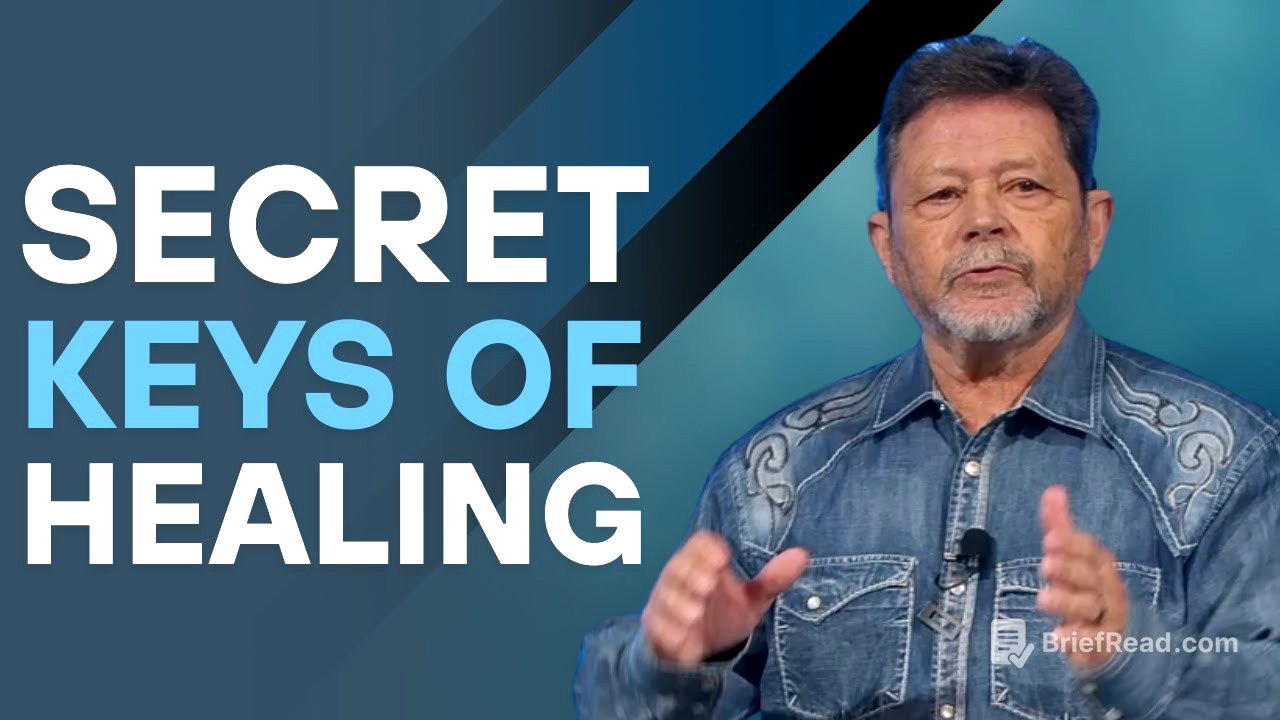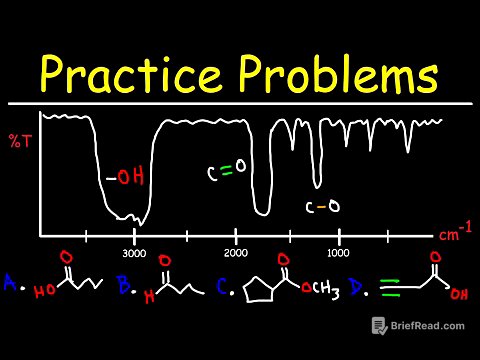TLDR;
This video provides an in-depth exploration of the "secret keys" to divine healing, as practiced by John G. Lake. It emphasizes the importance of training over mere teaching, advocating for active participation in ministering healing. The keys include destroying misconceptions about sickness, recognizing disease as an enemy, and adopting an aggressive stance against it. The video encourages believers to take responsibility, operate from a position of legal authority in Christ, and understand God's character and nature to effectively minister healing.
- Destroying misconceptions about sickness and disease.
- Recognizing sickness as an enemy.
- Taking responsibility for fellow humans.
- Operating from legal authority, not emotion.
Introduction to Dominion Life Training Center [0:10]
The Dominion Life Training Center welcomes everyone to their New Testament assembly of believers. The center focuses on training individuals to actively embody, practice, and fulfill God's calling in their lives, distinguishing this approach from passive teaching. The session will cover the secret keys to divine healing, principles used by John Lake from the early 1900s until 1935. These keys, rediscovered in the 1980s, aim to empower believers to effectively receive and minister healing. It's emphasized that preaching the gospel inherently includes healing the sick, a call applicable to all believers in various settings.
Destroying Sacred Cows [3:02]
The first key involves dismantling traditional beliefs that hinder healing, often blaming God or the sick person. These "sacred cows" perpetuate ineffective doctrines. Jesus never blamed people for being sick, so we shouldn't either. There are about 52-53 of these "sacred cows" that need to be destroyed. The Divine Healing Technician (DHT) training spends three days doing just that, leaving only the effective Word of God.
Recognizing Sickness as an Enemy [4:53]
Sickness and disease should be viewed as enemies to be actively sought out and destroyed, not as divine lessons or opportunities for spiritual growth. God does not use sickness to teach; the Holy Spirit is the teacher. Attributing sickness to God is akin to the Pharisees attributing God's works to Satan. Believers should aggressively confront sickness, attacking the disease, not the person, and preventing it from gaining any foothold.
Getting Fed Up with Sickness [7:05]
Believers must reach a point of being fed up with sickness and disease, deciding "no more" and taking a firm stance against it. This involves recognizing sickness as an enemy that distracts from God's goodness and resolving to actively combat it.
Treating All Sickness the Same [7:51]
All forms of sickness and disease should be treated equally as enemies, regardless of their perceived severity. Whether it's a cold or stage four cancer, no sickness should be given an opportunity to thrive. Effective healing requires a serious, committed approach, not just a casual add-on to faith. Christians should learn to minister healing themselves, rather than always relying on others.
Treating Sickness Like a Person [10:17]
Sickness should be treated as an entity, similar to how Jesus spoke to the fig tree, wind and water. Believers can speak directly to sickness and disease, commanding it to obey in the name of Jesus Christ, exercising the authority and power they possess as representatives of Christ.
Commanding, Not Begging [11:43]
When addressing sickness, believers should command rather than beg. Jesus never prayed to God for healing, but instead directly commanded the sickness to leave. This approach enforces God's sovereignty, as it aligns with His will for healing. Commands can be directed at the person's body or the sickness itself, recognizing that all sickness is demonic in origin, even if not directly caused by a demon.
Speaking to the Problem, Not About It [15:57]
Believers should address the problem of sickness directly, rather than discussing it with others. Just as Jesus spoke to the fig tree and the storm, believers should speak to the sickness, acting as God's representatives. Agreeing with others about the severity of a problem only worsens it; instead, believers should speak to the problem and command it to leave.
Seeing People as Oppressed Prisoners of War [18:41]
The sick should be viewed as oppressed prisoners of war, captured by the enemy, Satan. The role of believers is to set them free, not to judge how they became prisoners. Sickness is a form of being devoured, aligning with Satan's mission to steal, kill, and destroy. Believers must defend themselves with the armor of God, resist the devil, and submit to God to effectively combat the enemy.
Getting and Staying Clean [22:40]
Believers should remove sin from their lives, both big and small, through genuine repentance and reliance on the cleansing power of the blood of Jesus. Staying clean involves being filled with the Holy Spirit and actively engaging in good works, leaving no time for sinful activities.
Staying Out of Pride [23:42]
As believers experience success in healing, they must avoid pride, recognizing that their abilities come from Jesus. Claiming special gifts or anointing is stealing glory from Jesus, as it is He who empowers believers to perform these works. Either no one is special, or everyone is special because of Jesus.
Being Aggressive [31:16]
The church has often failed to be aggressive, due to an overemphasis on emotional sermons and passivity. Jesus demonstrated aggressiveness in His ministry, and believers should emulate this by speaking boldly and hitting with their words. Developing aggressiveness involves speaking directly to prayer requests and hating sickness to the same degree that one loves God and people.
Being Led by God's Character and Nature [38:51]
Believers should be guided by God's character and nature, not just seeking specific leadings. Obeying commands is itself a form of leading. Christians should crucify the lust of the flesh and be tempted to righteousness, aligning their nature with God's. This means not needing a specific leading to obey commands such as healing the sick or casting out devils.
Accepting Responsibility and Obeying the Bible [44:36]
Believers must accept responsibility for their fellow humans, recognizing that they may possess knowledge or abilities that others lack. They should decide to obey the Bible rather than waiting for arbitrary feelings, understanding that God is with them, in them, and for them.
Speaking from Legal Authority, Not Emotion [47:59]
When speaking about healing, believers should speak from legal authority based on Jesus's sacrifice, not from emotion. Praying as a representative of God, rather than as someone emotionally connected to the person, is crucial for effective prayer. Emotions should work with and for believers, not against them, and should not control them.
Relationship with God and Conclusion [51:15]
No one can judge another's relationship with God, as it is personal and unique. Marriage seminars provide tools, but applying them is necessary for change. Similarly, putting the principles of divine healing into practice is essential for transformation. Believers should not judge others based on emotional displays, but rather focus on obedience and cooperation with the Spirit of God. The keys to divine healing have been taught worldwide, with countless testimonies from those who have put them into practice, demonstrating that they work for anyone who is obedient in faith.









